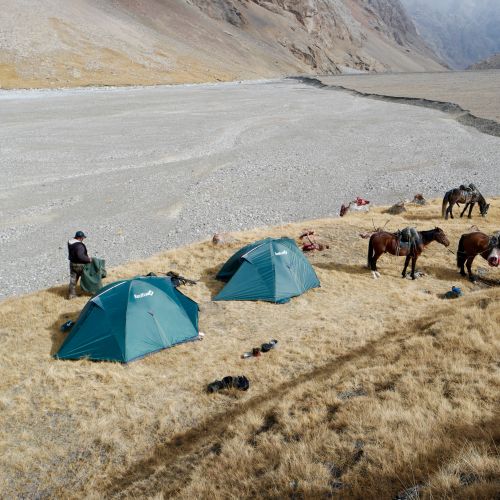Travelers to Kyrgyzstan need not be immunized but they should be vaccinated with the most recent Typhoid and Tetanus vaccines. It’s a good idea to consult your local GP to get advice on the most effective immunisations, as well as preventative treatments.
Drinks and food
The food in Kyrgyzstan is typically based around meat and rice, although the vegetables and salads offered are varied. You will be able to taste local cuisines as you travel, often overlapping with other ethnicities.
Regarding alcohol, the choice is mostly limited to vodka or beer so anyone wanting something different – Scotch , or Gin for instance – must buy it duty free and bring it out. Mixers such as tonic water are extremely difficult to locate in Central Asia.

Cultural Sensitivity
On our excursions, you’ll often interact with locals who have unique customs and practices. We ask you to show respect and consideration to the locals. You can always count on your guides or tour-leaders to help you.
Central Asia has a laid down attitude to Islam. This is the first thing you should be aware of while traveling in Central Asia especially in cities and towns. In areas such as Bishkek you’ll be shocked by the length of women’s skirts! However, it should be kept in mind that this is technically classified as a Muslim region and therefore an extra dose of caution is required in certain places. Both genders are allowed to wear shorts and T-shirts. When visiting mosques, women should cover their shoulders by wearing trousers or skirts. Men should avoid wearing shorts.
With just over 15% following Islam, over 80% of the people are Islamic.
Russian Orthodox Church.
Language & Religion
Kyrgyzstan was one of two former Soviet Republics in Central Asia that retained Russian as their official language. In the 90’s Kyrgyzstan was declared to be a multilingual country, with Kyrgyz as another official language. Due to Soviet policies, you will meet ethnic Uzbeks as well as Tajiks in some parts of Kyrgyzstan.
More details about Kyrgyzstan Tour go to this webpage.
